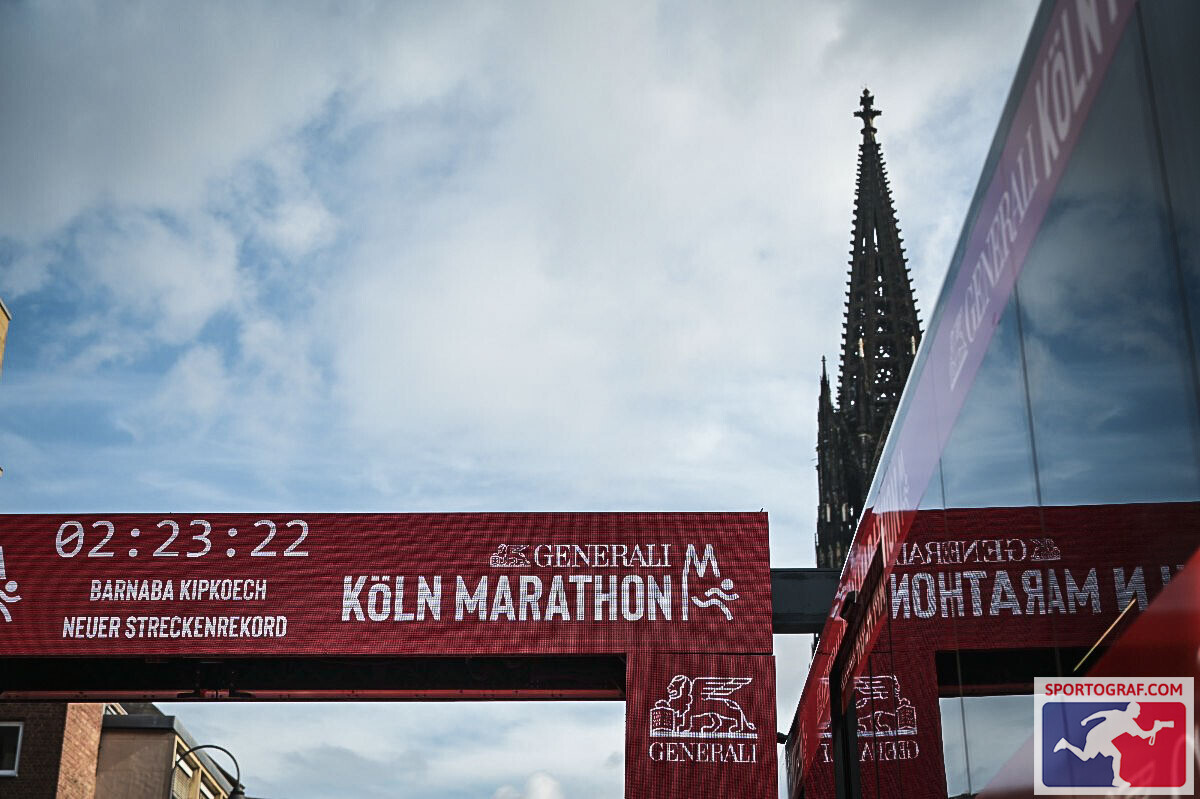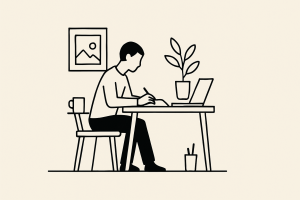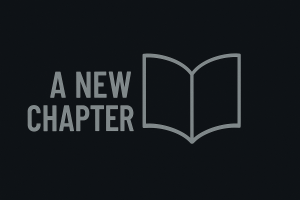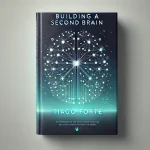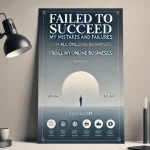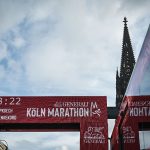“Do not limit your challenges, challenge your limits.”
After months of training, I finally completed my first-ever marathon at 20. It was the greatest physical and mental challenge of my life, so far. In this essay, I aim to share my journey, feelings, and thoughts, and reflect on what such a challenge and achievement mean to me in a broader sense.
You need two ambitious P’s, I’d argue: Ambitious people and ambitious projects. Let me explain my point with my running journey:
How it all started
“No matter how determined you are, it’s hard not to be influenced by the people around you.”
To give a quick briefing to my running journey:
I have met running or lets say noticed that it is humanly possible to enjoy it and it’s not just a pretentious “discipline-defining” activity, about exactly one year ago, as a really good old friend of mine encouraged me to go out for a run at sunrise. Though I was willing to start running consistently, I was missing some sort of a spark, a milestone, a “motivational force” till then. So I saw this offer as an opportunity and accepted it without hesitation.
Yet, the next day in the morning, I remember telling him —objectively— that it was cold, dark and windy outside to indirectly allude my desire to stay in my warm bed and continue sleeping without trying to give away my true intention due to my motivation and my promise the day before. Of course, he sensed the shallowness of my excuses and my true intention and coldly replied: “Hacik, these are only excuses, we’ll go out for the run.”
If he would have gently agreed with me there and we’d keep sleeping instead of going out for that run, I doubt if I ever come up to the idea of running a marathon. That day became the true milestone of my endurance carrier.
We did go out for a run that morning and I felt an extreme satisfaction and even more interest afterwards, as serotonin and endorphin peaked and he introduced me to topics like nutrition, glucose, energy (basically to convince me about why we had to eat 200g of rice in the morning) and data tracking (showed me his new Garmin, which I fell in love with). Till then carbs was just extra calorie-fillers for me as a gym-head, and protein was the king. I had no I idea what a VO2 max or HRV was, let these aside I didn’t even know how and why I should track my progress. After a week or so I ended up buying a Garmin (his exact one) and officially started my endurance journey.
So, that day I was pushed forward by an ambitious friend, who motivated me and expanded my vision. So, we all need —assuming we are ambitious ourselves and aim to achieve great things— ambitious, motivated, optimist, energetic, sincere and sustaining relationships.
Sustaining I say, because fairly enough, this exact friend also introduced me to cycling and triathlon, which I then truly embraced as well.
Not every friend does fulfill these criteria, and they genuinely do not need to. I have tons of friends whom I like for the sake of being friends and not particularly because we are similar minded, in this case ambitious. But as one’s goals get bigger and more precise, they shall be looking for such similar minded, ambitious and sincere friendships and value the ones they already possess. University is a great place to make such relationships. On the other hand, ambitious but unfriendly, insincere or even cocky people are definitely to avoid.
How it turned into a Marathon
“Inspiration is perishable and life goes by fast. Inaction is a particularly insidious type of risk.“
After having discovered this new joy, it became consistent, and even intense. After around three months I did my first (non-official) half marathon and became certain I wanted to run a marathon within 1 to 2 years. I had just set an abstract goal. Yet shortly after I stumbled upon a video on Youtube titled “The day I became an Ironman” by Average Rob. Though I had heard of the Ironman Triatlon before, it was the first time I was certain that I wanted to do it. For that goal I gave myself 3-5 years of time.
So I got a bike and started cycling. For a while I did running and cycling intensely. It was fun. But that was indeed the problem. What? Yes, I wasn’t particularly working for my goals I had set, but rather I was just exercising for fun. In case I didn’t feel like doing something, I simply didn’t. There wasn’t no regret of skipping since there was no plan, but just an abstract goal. So, reminding myself the quote “Don’t set goals, set systems.” from Atomic Habits, I suddenly realized that the key is to turn abstract goals into well defined and structured projects. A project is, to my understanding, a goal with a minimal viable plan and a proper execution. GPT says to this extend: “a planned piece of work that is designed to achieve a specific goal within a set timeframe and usually with defined resources.” So basically:
Goal + System = Project
So I then realized, to actually achieve my goals and not let them float in my dream reality I had to turn them into projects, since they were ambitious goals, I’d have ambitious projects.
Therefore, I looked up for upcoming marathon dates, chose one, signed up, founded an app to schedule my training and then just executed.
Then I realized how is it like to “work hard” for a goal and how is it really like to make trackable progress. Do not confuse the “work hard” label with “working until fatigue/burnout”. It really is just about compounding. I’ve related the cliché “Work with discipline, not motivation.” better, which basically refers to the consistent execution of the tiny little compounding steps that make up the big picture, regardless of the current state of motivation.
Training Season
So I ran till July 2025 inconsistently for fun with the goal of running a marathon in 1-2 years in the back of my mind. And on the 1st of July I’ve realized I had to turn this abstract goal into a project, so signed up for the Generali Köln Marathon on the 5th of October (I wanted my first marathon to be a big one and its time and place was suited for me) So I had around 3 months for training. There again, I’ve taken advantage of the compound effect of progress. The training split was 4 times a week, with a long run on Sundays, 1-2 threshold runs (tempo/intervals) or easy runs spread across the week. So I tried to execute this plan as properly as possible (of course I missed a few trainings, but tried to catch up with them). So everything was nice and expected, throughout the journey I did a good amount progress, I have ran several half marathons (at each one I couldn’t imagine running them once again) improved my pace and my heart rate drastically.
Note: For those who are not that familiar with running, or generally with endurance sports: Its physiologically mostly about heart rate. I had written an essay about energy systems. But a quick flashback: there are 3 different energy systems: Phosphagen-, Glycolytic- (anaerobic) and the Oxidative- (aerobic) system. The ultimate goal for the endurance athlete is to use the oxidative system (most efficient on long term) with maximum amount of output. Meaning: if you have a low heart rate (lower than your threshold zone) you use the oxidative (aerobic) system and be efficient for long distances. Sure you can run fast without training, but you’ll probably end up using the anaerobic system which will last 2-3 minutes until fatigue. So throughout training (especially threshold training) your body learns to perform better with less energy, which allows you to become faster while keeping the heart rate low. So endurance is not solely about the mindset, you’ll also need some biology as well.
The Dramatic Conflict
However, though everything seemed so nice and on place, something happened I’d never ever wished to happen. In fact, it was as a try-athletewas one of my biggest fears, if not the one: I got injured. Worse: just exactly two weeks before the race. It was the Sunday 21st of September, I was out for my first ever 30k long run, though I had no desire at all to do it, I simply had to, it was on the plan and was going to be the first and last race simulation. So I got everything setup just as in the race and got going. First 20k was fine but right after, I felt something on my right foot, it was the ankle, didn’t think much since it didn’t really hurt and just kept running. After kilometer 25, my phone has died and I got lost (I was sure that I was in the neighborhood and would make my way home). Apparently I just missed a turn and kept running forward. After a while, as I realized that I was lost, I asked a stranger about the way, but it didn’t help further. I ended up trying to hitchhike (pull up cars) in the middle of nowhere, just me, a huge field, trees, a traffic circle and cars. It was dark and had just started to rain. A bus stopped by. I asked where I was and how I could get to my neighborhood. I had 28k on my watch, so I wanted to run home. The bus driver was very gentle and told me I was too far away and took me in. After riding the bus home, I did the last 2k around my home and accomplished the 30k. Referring to this I then wrote into my journey:
The Drama - Wed, 24.09.25
[...] This Sunday I was out for a 30k race simulation. Besides a set of undesirable things that happened, I got injured. I wanna think and really hope it’s not too bad. But I’ve recently some pain on my right foot ankle and can hardly step on it. So my biggest fear became the dramatic challenge in this journey. Worse that that: just 2 weeks before my marathon. [...]
So I just wonder now how it will impact my training and my ultimate goal of Sub 4. Though anxious, I am still on track.
The Raceweek
Initially, I was thinking that I won’t be able to run for 3-4 days and then keep training and easily attend to the marathon. But it was far worse than I thought.
I couldn’t train the week after the injury at all and in the race week it even got worse. From thinking I shall rest for 3-4 day, I was then doubting to attend to the marathon, because of possible long term consequences. On Monday my first job was to desperately look for an appointment at an orthopedic doctor. I couldn’t find any and so wrote into my journal:
Six days out - Mon, 29.09.25
[...] I’ll just rest till the marathon, tape my ankle and use some medicine if needed on the raceday and come back to the doctor.” (I got an appointment on the 6th, right after the race)
But on Tuesday it got worse and felt like it was burning inside. So on Wednesday morning I went to the hospital, to emergency, because I certainly wanted to learn if it was something too bad and it’s at no cost safe to run the marathon, and if I rather should skip it to avoid worse, even chronic problems that will affect my athletic career on longer term.
After 5 hours at the hospital, I got out happy. After an X-ray and examination the doctor said that I basically overused and damaged the tendons. No stress fracture, no bone or ankle issues, they said. So I was supposed to rest, do ice and take Ibuprofen twice a day for 5 days.. 5 days?? “I have a marathon in 4 days! Is it safe, may I attend?” I asked. They replied: “Better not”. I insisted just to find out if the pay off would be too expensive or just manageable, in case I’d run the marathon. They said: “Alright just do as I say and have a look after 4 days. If the pain is fine, you may.
So I tried my best. But it wasn’t really getting better. Thursday was mentally the lowest point of the journey. I was feeling the regret of not having rested right after the injury properly and not having gone to the hospital earlier, as well as the disappointment of next closest marathons being in the spring of 2026. So it was a hard day.
But on Friday evening, I suddenly felt better, not physically but mentally, I sure was still unsure, but my setting was switched from the doubtful and anxious to the motivated and determined:
Two days out - Fri, 03.10.25
This title was also the title of a story I just posted, with my bandaged foot and the ice pack on it. This was to show myself that there is no way back, despite all the doubts if I should or will do it (participate), I am committed; was working hard as fck to achieve this, and now, it’s time.
[...]
So I am aware of the possible consequences and accept it. We’ll go out there, put our best effort and prove to ourselves that it was worth it. [...]
The important thing is we go out there, fight, and give our best!
I don’t know if it was due to this recovered mental, but the pain got a lot better the next day. I was certain that I was going to attend and try to give my best but was doubtful if the pain would get just unmanageably painful and I would have to quit after 2 km or if I could endure the whole distance of 42.195km with that slight pain, and preferably not feel much after a threshold due to high adrenaline.
One day out - Sat, 04.10.25
[...] My pain feels a lot less and my foot is fine. It’s not completely gone but decreased pretty much (thanks to the 4-layer KT tape :D) Yet I cannot predict it while running at all. I just might run a few meters and the pain gets worse and stops me or I could run my sub for 4 marathon and the pain keeps still. So I am thrilled to see myself at the start line tomorrow.
Besides the pain and my foot I neither can predict myself. I haven’t trained at all in the last 2 weeks. And even for 3 day brakes I had a hard time recovering in terms of performance. So I hope it also will just be fine.
Other than these, I was at the expo today. It was nice, I got my starter pack and my bib number. So it’s just me now! Me vs me.
The Raceday
It’s the race day. One word: spectacular. It was incredibly great, really. The atmosphere, the people, even the weather! I was mad because it was showing cloudy and rainy for the weekend on Friday. But it was the opposite: sunny clear sky but cool. Perfect for running and my favorite type of weather.
So as we arrived to the starting point by train, I was immediately hyped up. Seeing all those high energy people with the same goal as me got me excited. The first impression was just great, I had already loved the event and had a great feeling. After starting I took it easy because of my foot, tried to keep it as stable as possible. Meanwhile, the audience was even more hyped than me and the runners themselves. So just at the start I saw a teaser of the whole atmosphere.
After a kilometer or so I was convinced that the second scenario would turn out to be true, and I might make it to the finish line with that slight pain on my foot. So after the warm up I geared up.
But suddenly an elderly gentlemen overtook me. It was so unexpected and interesting for me that I chased him for a few hundred meters and finally approached and talked to him. He is the ultimate og endurance veteran I then learned. He was such an interesting and friendly man that we have ran the first 10k together.
As we have kept talking I became more shocked: His name was Gunther and he was 72, born in 1953 and has been running marathons since 1986. In total, he has completed 118 marathons and all 27 Generali Köln Marathons. He wasn’t taking any energy gels, nor was he tracking his run (but his pace was so synthetically steady). As I asked what his heart rate was, he replied: “I don’t know, I just breath in in 3 steps and out in one.”
After the first 10k I had to leave Gunther to get faster for the sub 4. So from 10k to 24k I was just too hyped up, energetic, feeling it, and fast as f*ck. Knowing and telling myself I had to slow down, otherwise I’ll pay it off, it just didn’t 🙂 Around 20k at the Uni Köln bridge it started to hit, my foot pain got much worse, but I was expecting that so just kept running. And at 24k I totally hit the wall (which is usually expected around 30k). So there I saw the other side of the coin.
At around 27k, in Ehrenfeld, I saw my family once again (last time was ~13k) and got some spiritual and hydration boost. So till 30k I have managed to survive somehow. But at 30k, the second wave of the wall hit. I was still under the 3h mark but no matter what I did, I couldn’t manage to get faster, let alone getting faster, I barely could keep my pace steady with literal maximum power input. It was a total mental crash and almost a shutdown. My foots pain perished, because obviously my mind had more critical things to deal with.
The next 4 kilometers between 30-34k was the longest, non-ending phase of the race. It literally felt much longer than the first 30k of the race.
It was such a strange and unusual experience for me to have a very heated conversation, a verbal fight in my mind about why I should quit and why not. There was literally, actually a voice presenting all the demotivating and negative arguments to convince me stopping, and another voice trying to counter-argument and mostly ignore. I truly grasped the concept of endurance being a mental game, there. I was constantly trying to think of my why’s, my reasons, people who were there to support me, people who had faith in me, my motivational forces, and even motivational clips 😀 But to be honest, deep inside, despite all the conflicts and challenges I was always concise that I’ll never quit and just finish it. And after seeing a really good friend come there to support me, handing me some dates, a banana and water, I was even more certain about my goal of finishing the job.
At 36k I slurped my last energy gel and kept eating. Though I felt like I was going to throw up if I continue eating, I needed to keep fueling. Otherwise my body would shut it down.
An the last few kilometers have mainly passed because of the incredible support and cherishes of the cologne people. As my head would fall down, they’d shout: “Come on Alper, you got this, you’re almost there.” reading my name from my bib number. As I saw my friend at 37k and my family at 39k for the last time, I just gave it all and made it to the red carpet, and then to the finish line.
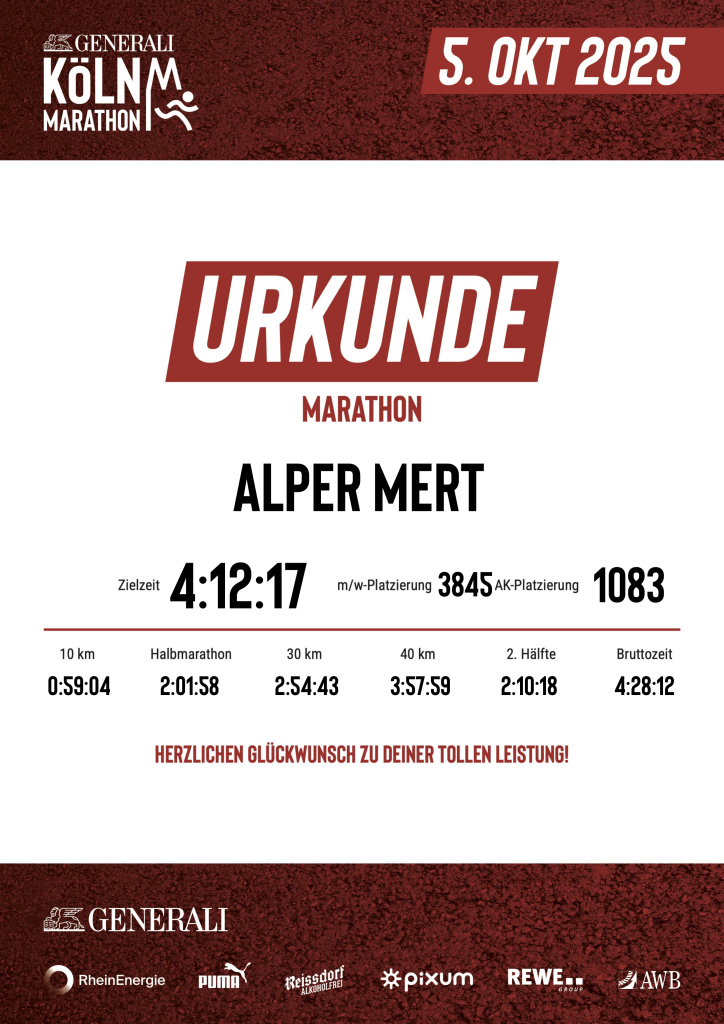
What it all means
It sure was an unforgettable memory and to this day as I am writing this it is the greatest physical and mental challenge of my life. However, I said the same thing after my first half marathon and will probably say it after my first Ironman too. So, this means, your last achievements always define the level of the upcoming ones. So the key is to deliberately put on your most recent achievements and keep constantly getting better at fields that you find interesting, meaningful and that make you happy. Though, do not to forget: such efforts wouldn’t mean much if they weren’t with or for the people who make you happy.
Still, the life or the success isn’t a standard ambitious project that exists to be check-marked after having achieved a set of goals, but it is a continuous journey. The joy lies in enjoying the journey itself. I do believe that a process-enjoyer whilst pursuing ambitious goals enjoys and achieves much more in life than someone who sees life as an outcome-based project. Having no (ambitious) goals at all but just “enjoying” the chill life does not fulfill the existential purpose of human creature, I believe. It even might lead to a feeling of purposeless in life.
So to come back to my marathon result. I initially planned a sub 4:30 but than I said, to reach the sky, one shall aim for the stars and so wanted it to be harder, and set a goal of sub 4 for my first marathon. I ended up doing a 4:12:17 which I am happy with. Sure, I just failed my goal, but this was fine. It was the journey that made this goal so valuable, even more so; the people who were always there for me.
But still, we go for it the next time:
“If you just set a goal, you make a plan and execute it, you can do it. And if you can’t do it this time, then next time. That’s how it works.”
Just as I tried to achieve throughout this marathon journey, it reflects my general view and goal: pursue ambitious goals, do hard things, and build on yesterday. To do so, surround yourself with ambitious people and turn your ambitious goals into concrete projects. Meanwhile, enjoy the process with your loved ones, let success be the outcome, grow, perform, serve and ultimately make a meaningful impact.
This is why. The marathon is just a symbolic metaphor that represents something far greater and far more meaningful: the life itself.
